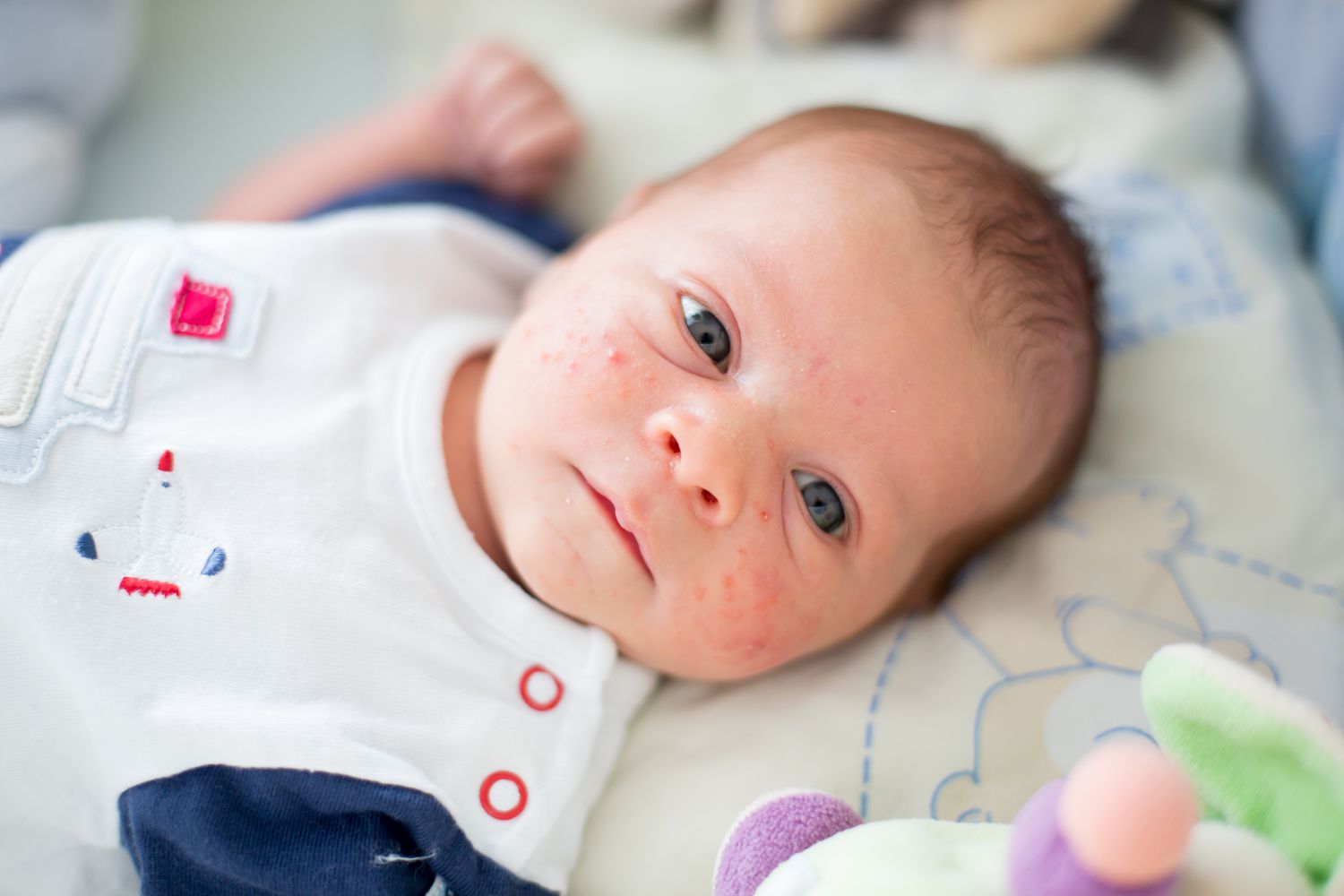Babies are precious little beings, but it’s not uncommon for them to develop acne on their face. Although it may be distressing for parents to see their baby’s smooth skin marred by pimples, it’s important to understand that baby acne is a common occurrence. In this article, we will explore the causes behind why babies get acne on their face and discuss the best ways to treat and manage it.
Baby Acne: Hormonal Influence
One of the primary reasons why babies develop acne on their face is due to hormonal influences. During pregnancy, a mother’s hormones pass through the placenta and affect the baby’s system. These hormones can stimulate the baby’s oil glands, leading to the development of acne. This type of acne, known as neonatal acne, typically appears within the first few weeks after birth and may last for several months.
Maternal Hormones
Another contributing factor to baby acne is the presence of maternal hormones in breast milk. If a mother’s hormones are still present in her breast milk, they can affect the baby when nursing. This can lead to the stimulation of the baby’s oil glands and subsequent acne breakouts.
Irritation from Skin Products
Babies have delicate and sensitive skin, making them susceptible to irritation from certain skincare products. The use of harsh detergents, lotions, or oils on a baby’s face can clog pores and trigger acne breakouts. It is crucial to choose gentle, hypoallergenic products specifically formulated for babies to minimize the risk of skin irritation and acne.
Heat and Moisture
Babies often have naturally moist skin folds and tend to drool, especially during teething. The combination of moisture and warmth in these areas creates an ideal environment for the growth of bacteria, which can contribute to acne formation. Keeping the baby’s face clean and dry, especially after feeding and drooling, can help prevent acne flare-ups.
Treatment and Management
While baby acne usually resolves on its own without treatment, there are some steps parents can take to manage and alleviate the condition:
- Gentle Cleansing: Cleanse the baby’s face once a day using a mild, fragrance-free cleanser specifically designed for infants. Avoid scrubbing or using rough towels, as this can further irritate the skin.
- Avoid Squeezing or Popping: Resist the urge to squeeze or pop the acne, as it can lead to scarring or infection. Baby acne is temporary and will fade over time.
- Patience: It’s essential to be patient and allow baby acne to run its course. Most cases of baby acne resolve on their own within a few months without any intervention.
- Clothing and Bedding: Choose soft, breathable fabrics for your baby’s clothing and bedding to prevent further skin irritation.
- Consult a Pediatrician: If you are concerned about your baby’s acne or if it persists beyond a few months, it is recommended to consult a pediatrician. They can provide guidance and, if necessary, prescribe medicated creams or ointments.
Baby acne on the face can be a common and temporary skin condition that arises due to hormonal influences, maternal hormones, skin product irritation, and heat and moisture. While it may be distressing for parents, it is essential to remember that baby acne typically resolves on its own without intervention. By practicing gentle cleansing, avoiding skin irritants, and maintaining a clean and dry environment, parents can help manage and alleviate baby acne. If concerns persist, consulting a pediatrician can provide further guidance and support. Remember, a little patience and care go a long way in keeping your baby’s skin healthy and blemish-free.

